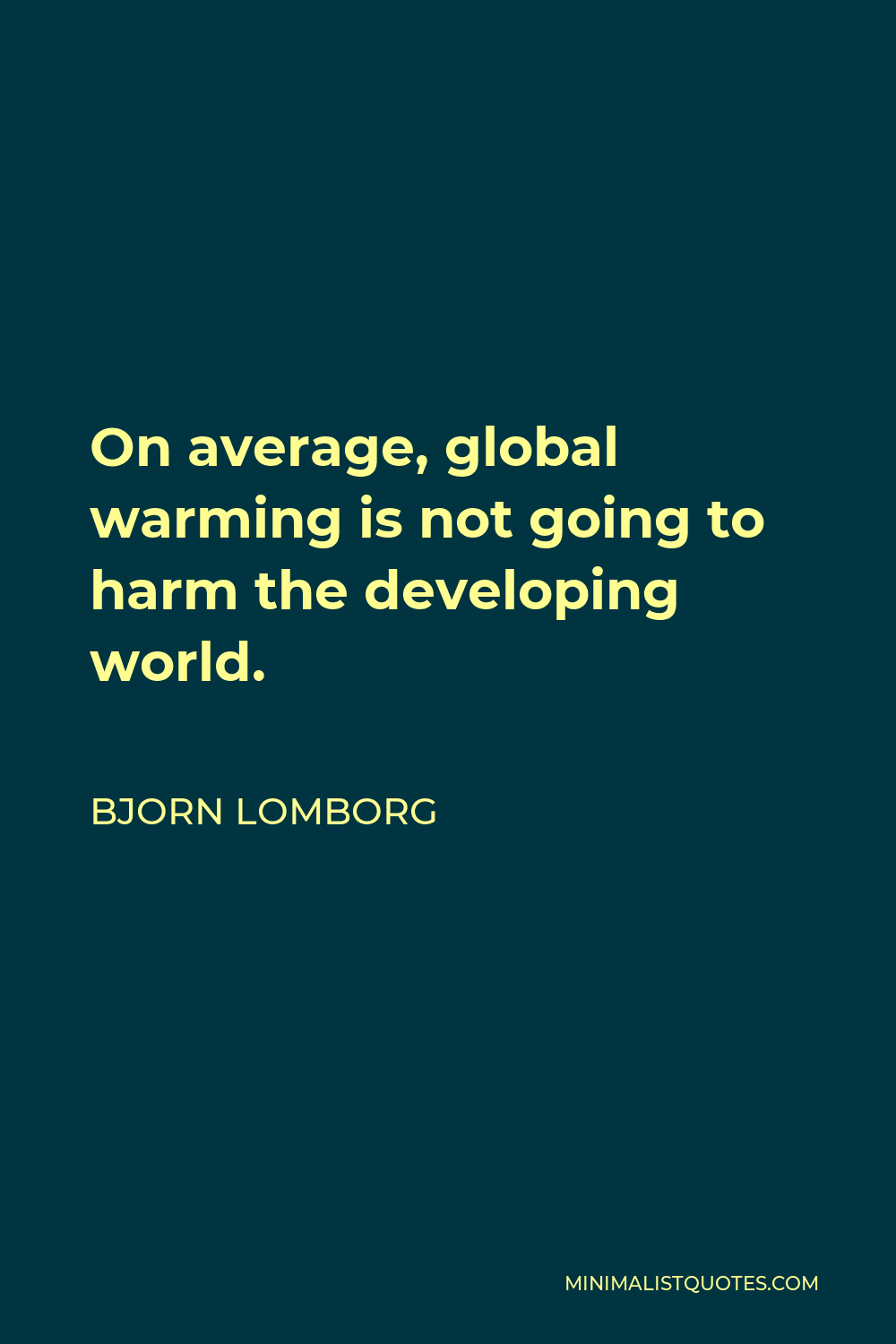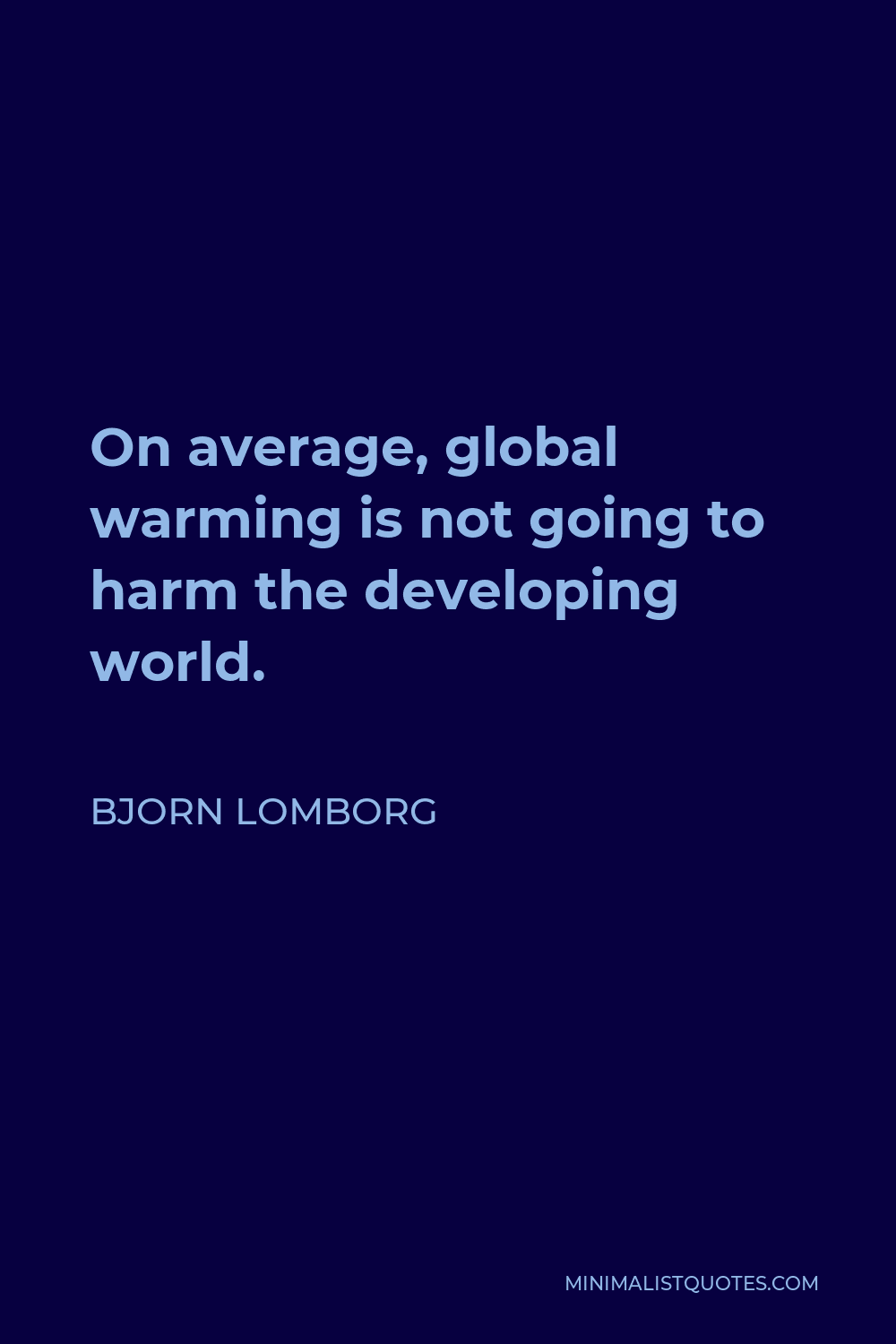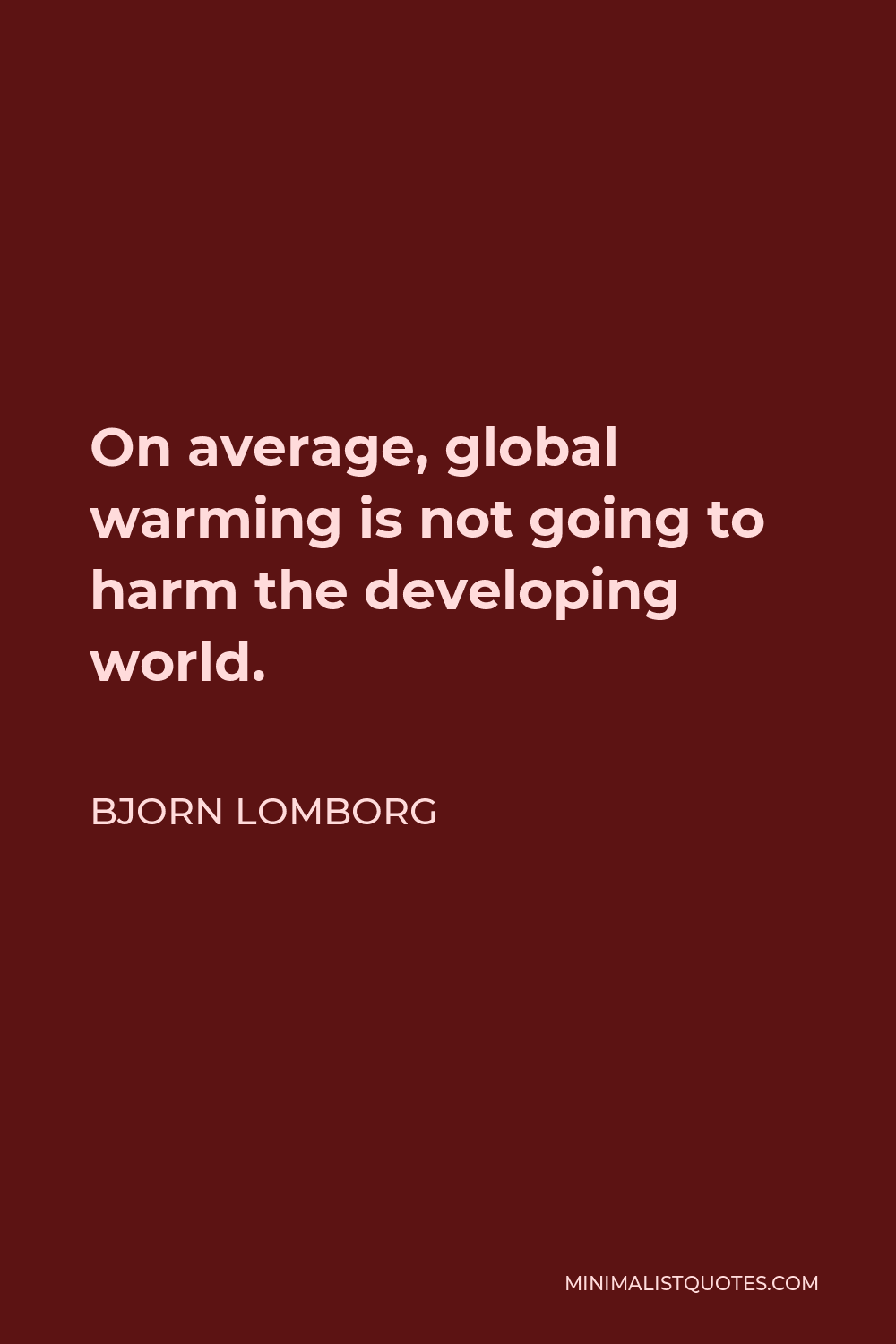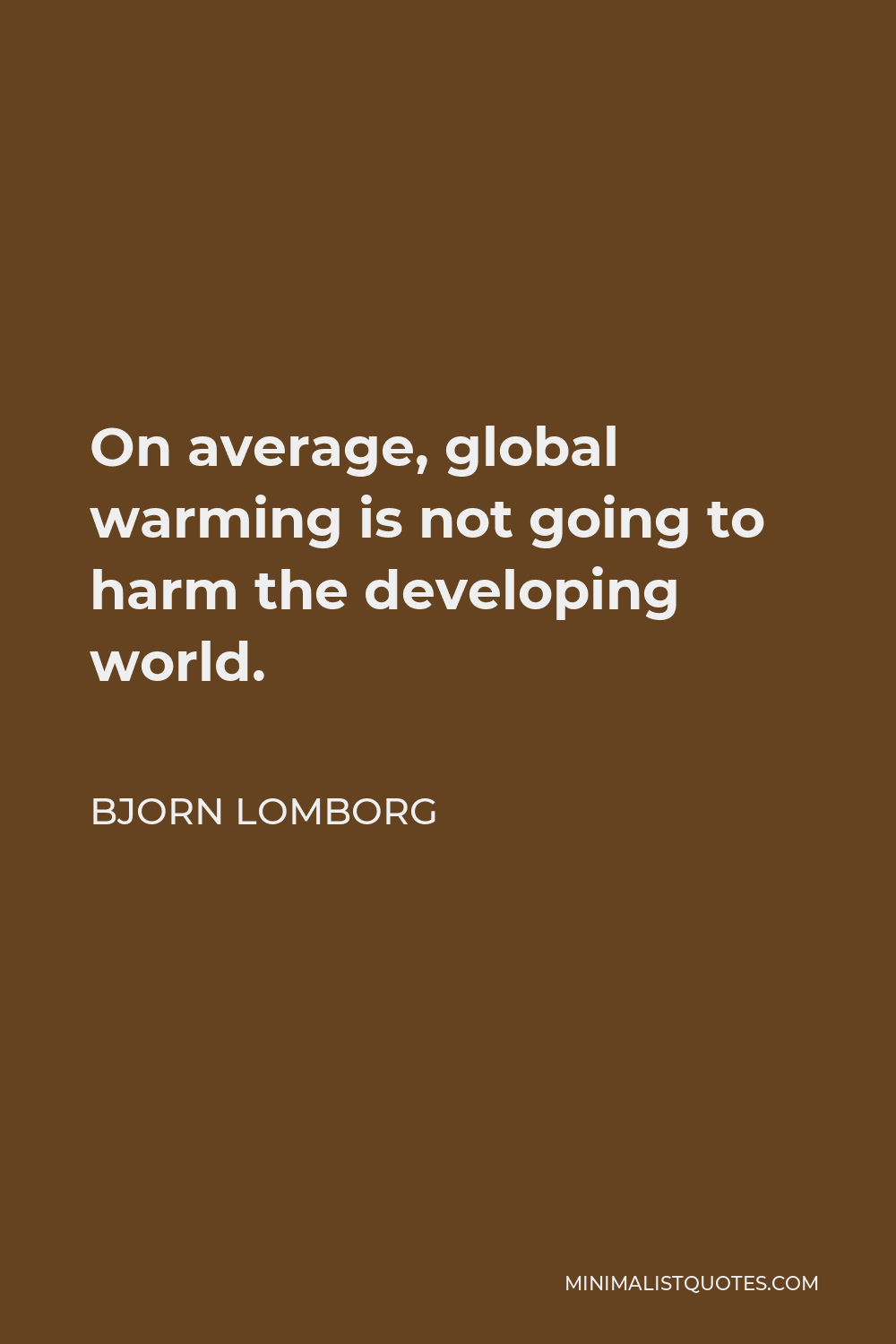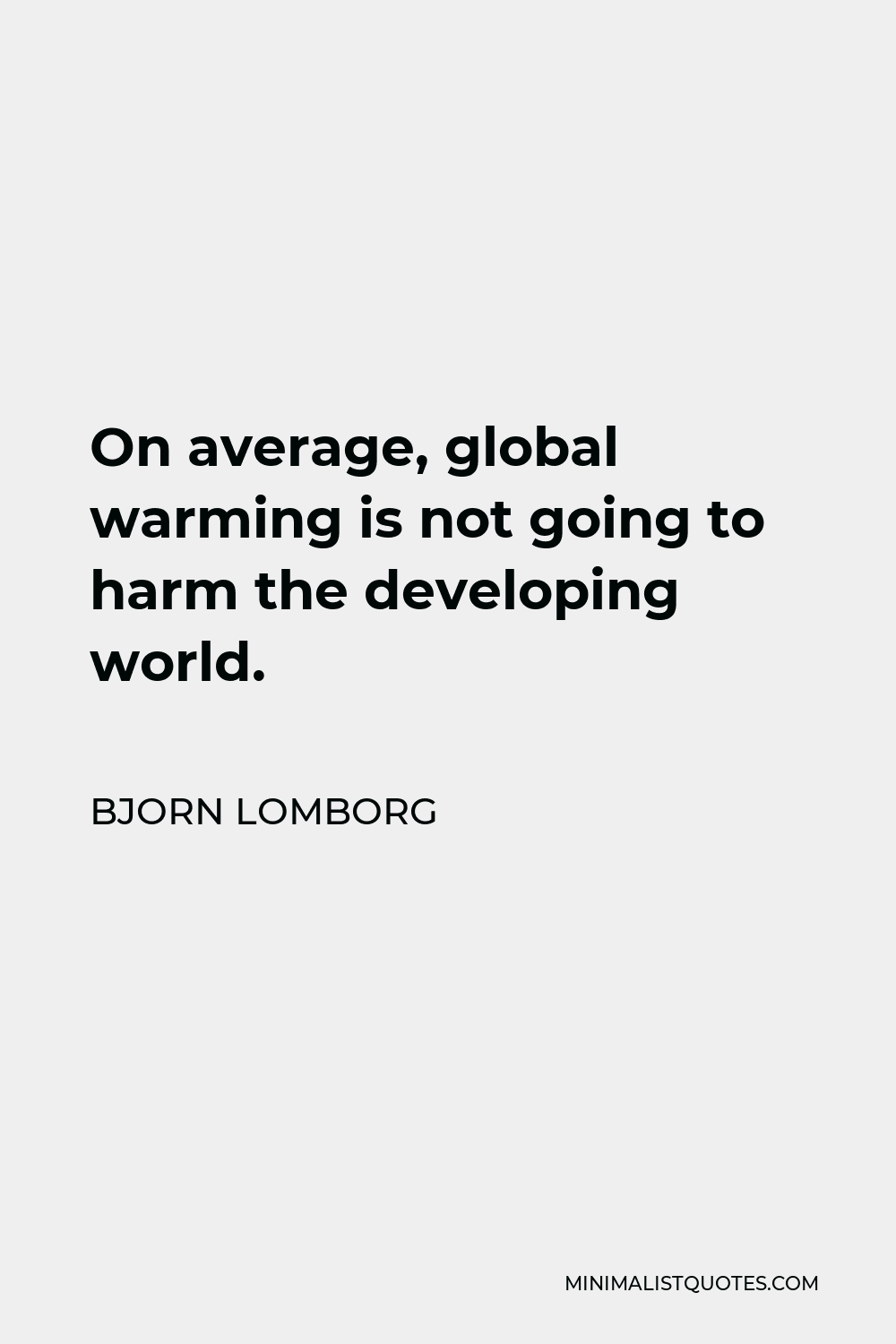Surely the biggest problem we have in the world is that we all die. But we don’t have a technology to solve that, right? So the point is not to prioritize problems; the point is to prioritize solutions to problems.
BJORN LOMBORGOn average, global warming is not going to harm the developing world.
More Bjorn Lomborg Quotes
-






-





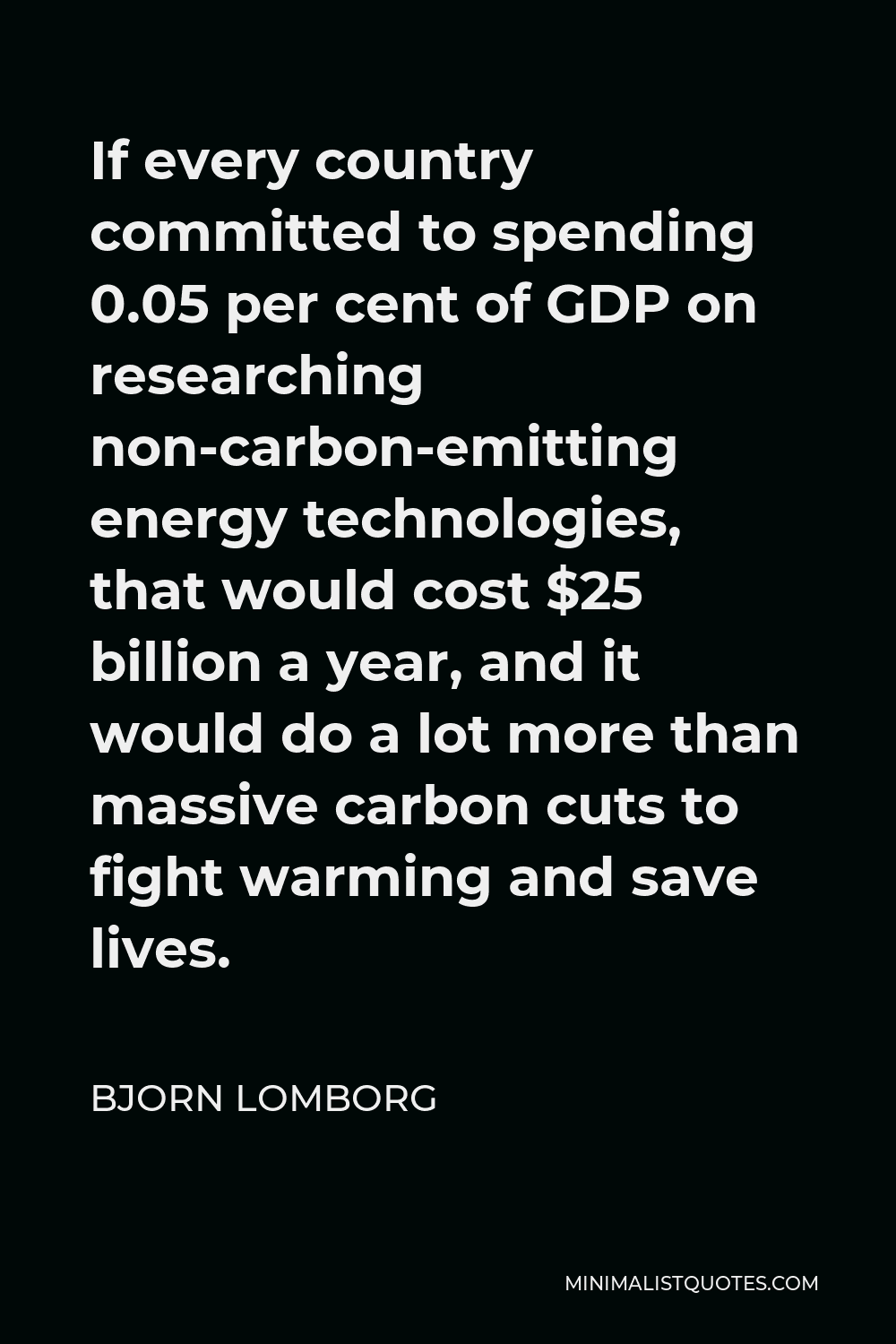
If every country committed to spending 0.05 per cent of GDP on researching non-carbon-emitting energy technologies, that would cost $25 billion a year, and it would do a lot more than massive carbon cuts to fight warming and save lives.
BJORN LOMBORG -






Obviously any group that has to have funding also needs to get attention to their issues.
BJORN LOMBORG -





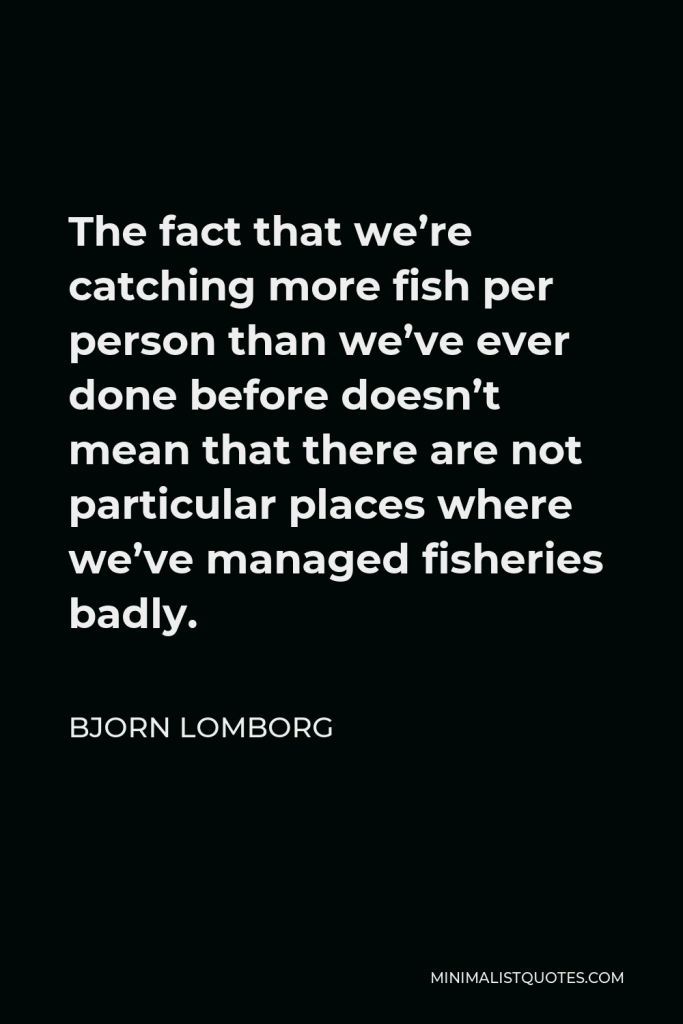

The fact that we’re catching more fish per person than we’ve ever done before doesn’t mean that there are not particular places where we’ve managed fisheries badly.
BJORN LOMBORG -





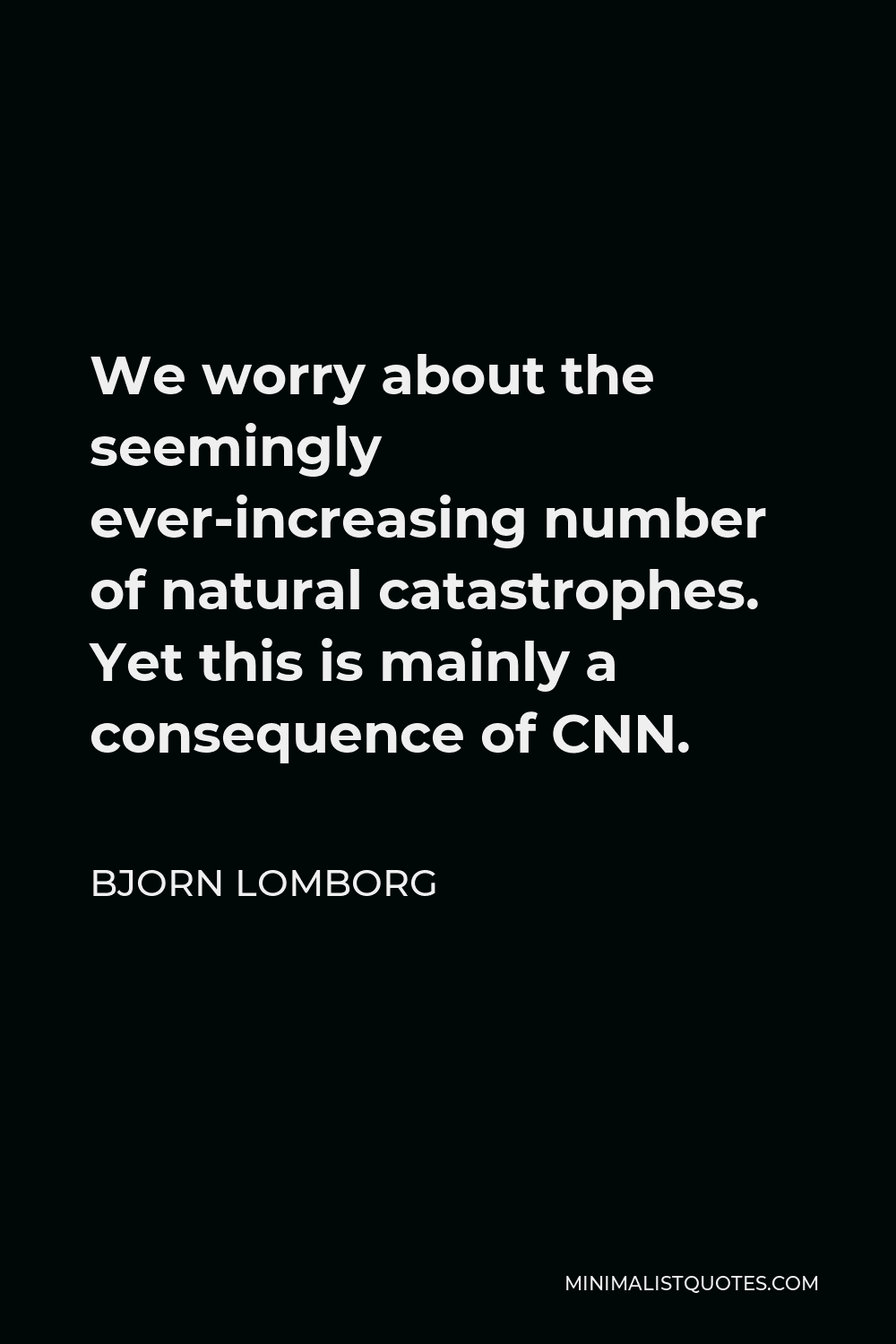
We worry about the seemingly ever-increasing number of natural catastrophes. Yet this is mainly a consequence of CNN.
BJORN LOMBORG -







There is no question that global warming will have a significant impact on already existing problems such as malaria, malnutrition, and water shortages. But this doesn’t mean the best way to solve them is to cut carbon emissions.
BJORN LOMBORG -





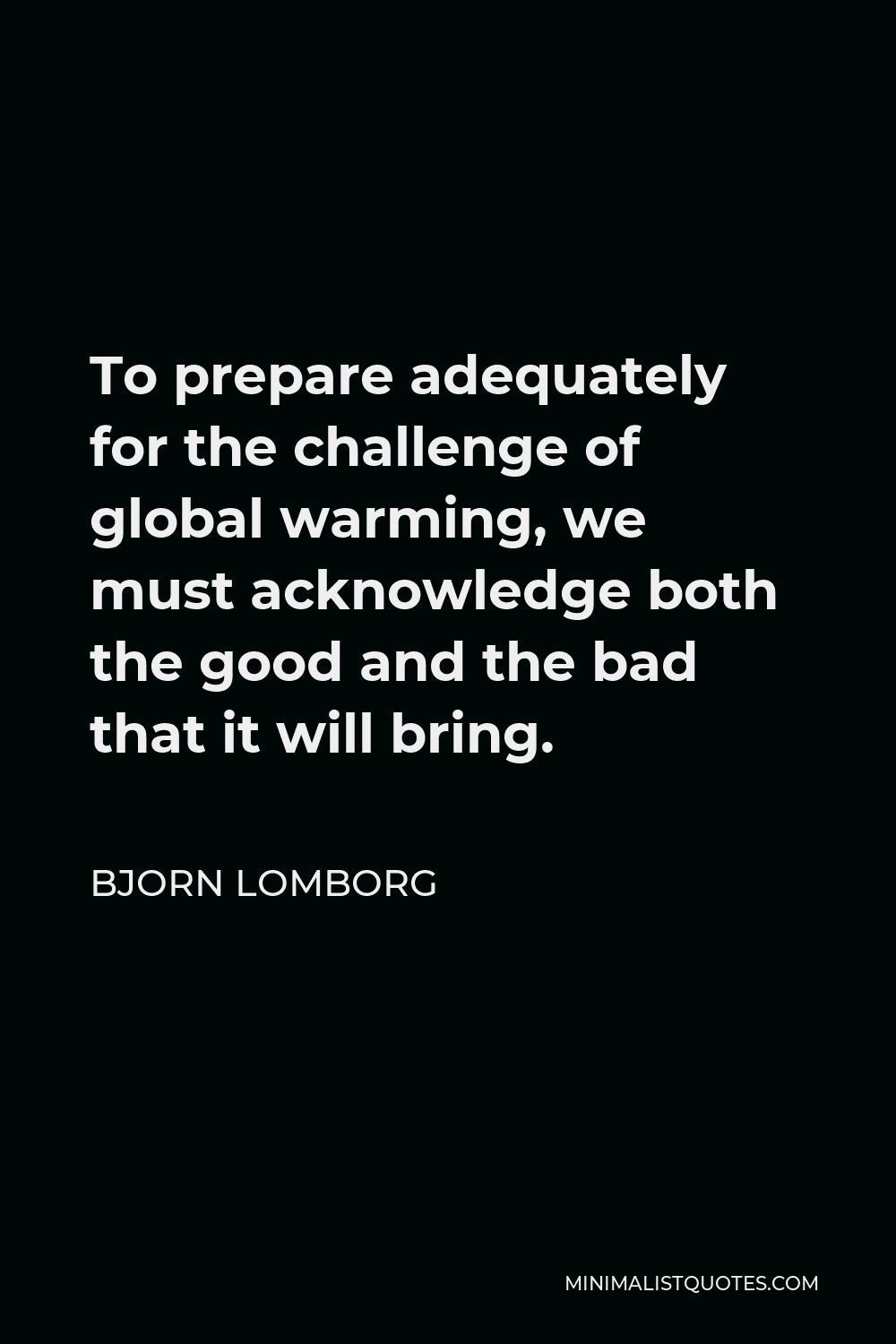
To prepare adequately for the challenge of global warming, we must acknowledge both the good and the bad that it will bring.
BJORN LOMBORG -





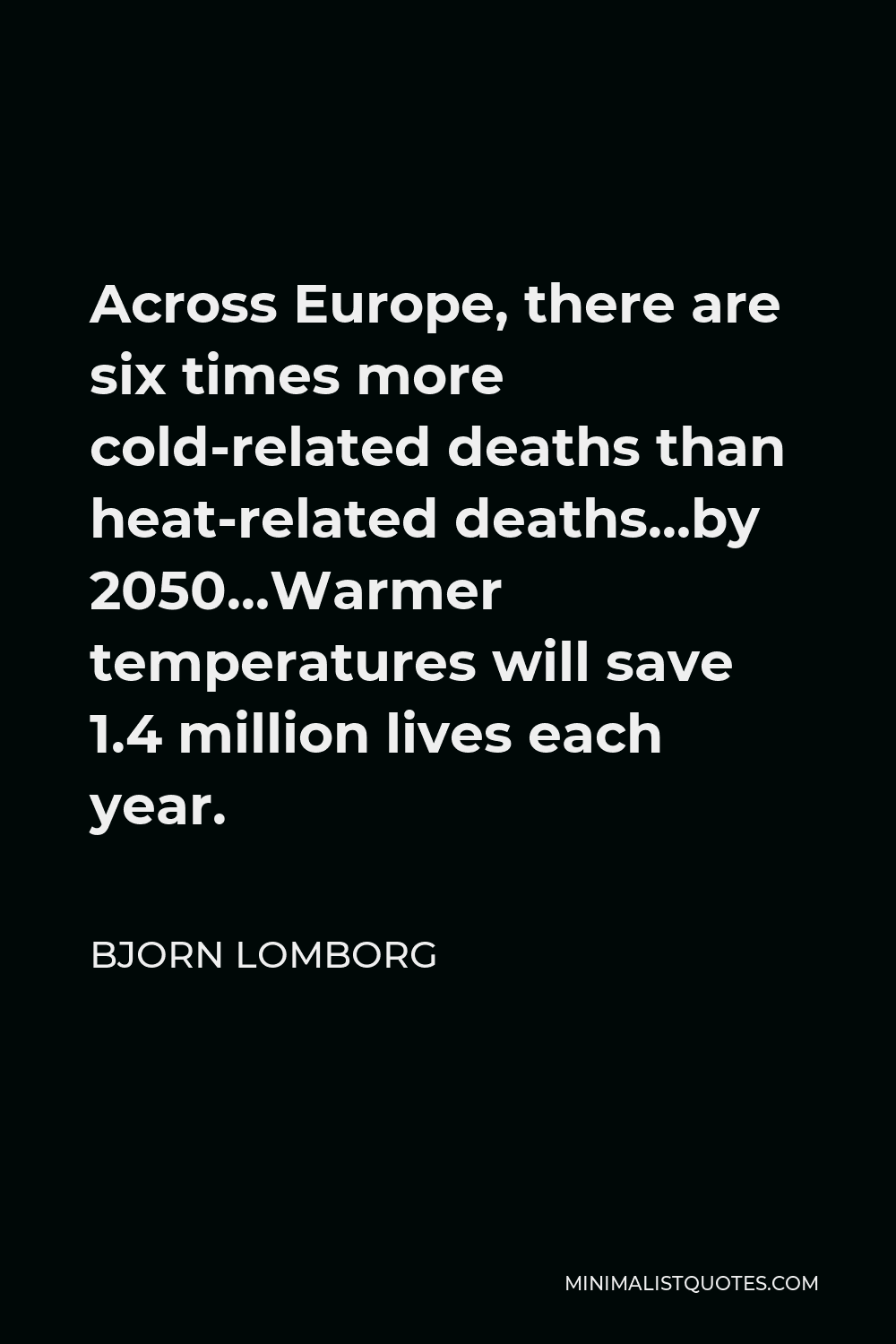
Across Europe, there are six times more cold-related deaths than heat-related deaths…by 2050…Warmer temperatures will save 1.4 million lives each year.
BJORN LOMBORG -





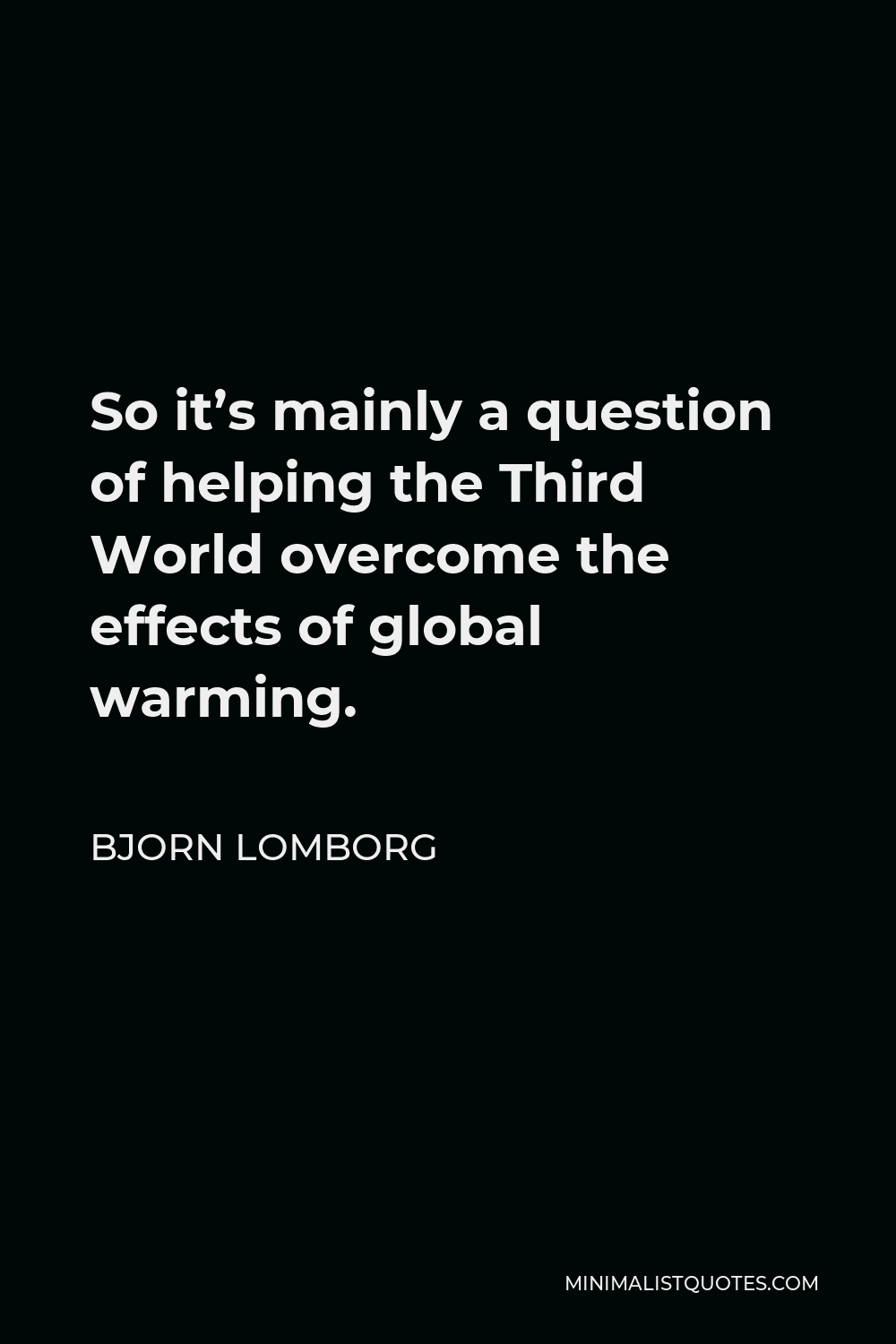
So it’s mainly a question of helping the Third World overcome the effects of global warming.
BJORN LOMBORG -





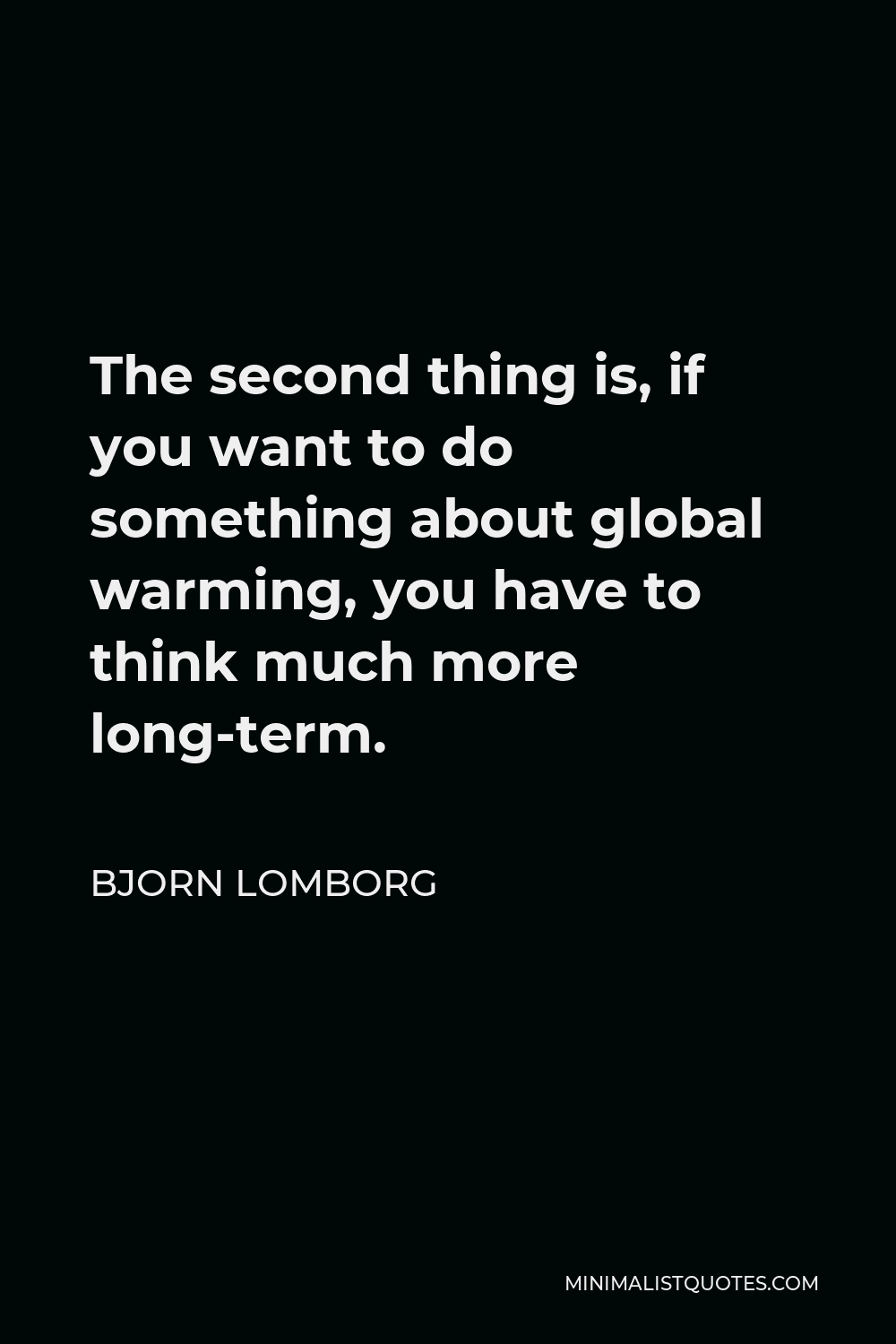
The second thing is, if you want to do something about global warming, you have to think much more long-term.
BJORN LOMBORG -







If our starting point is to prove that Armageddon is on its way, we will not consider all of the evidence, and will not identify the smartest policy choices.
BJORN LOMBORG -






Wishful thinking is not sound public policy.
BJORN LOMBORG -





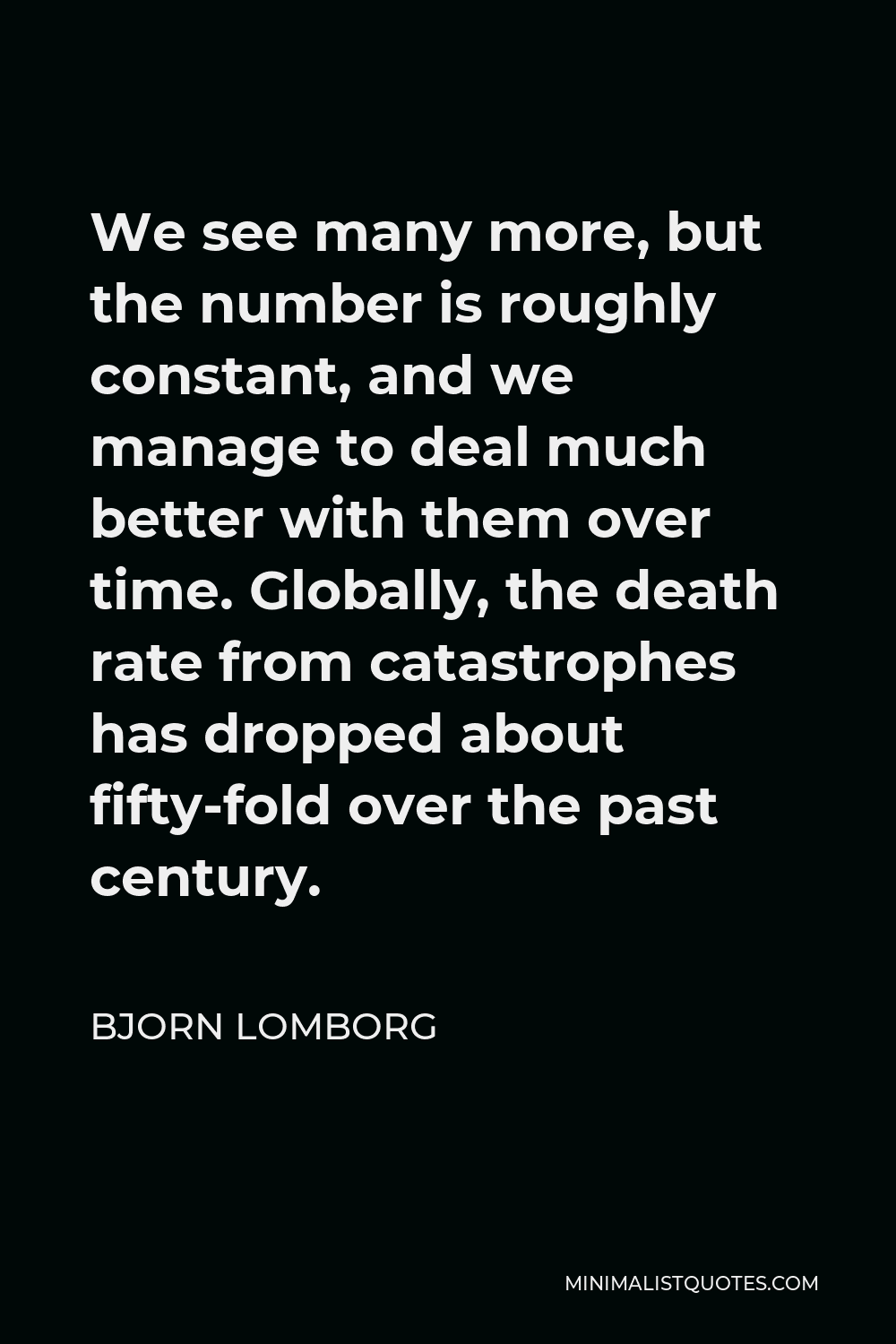
We see many more, but the number is roughly constant, and we manage to deal much better with them over time. Globally, the death rate from catastrophes has dropped about fifty-fold over the past century.
BJORN LOMBORG -






Money spent on carbon cuts is money we can’t use for effective investments in food aid, micronutrients, HIV/AIDS prevention, health and education infrastructure, and clean water and sanitation.
BJORN LOMBORG -






Nobody wanted to buy a computer in 1950, but once they got cheap, everyone bought them.
BJORN LOMBORG -





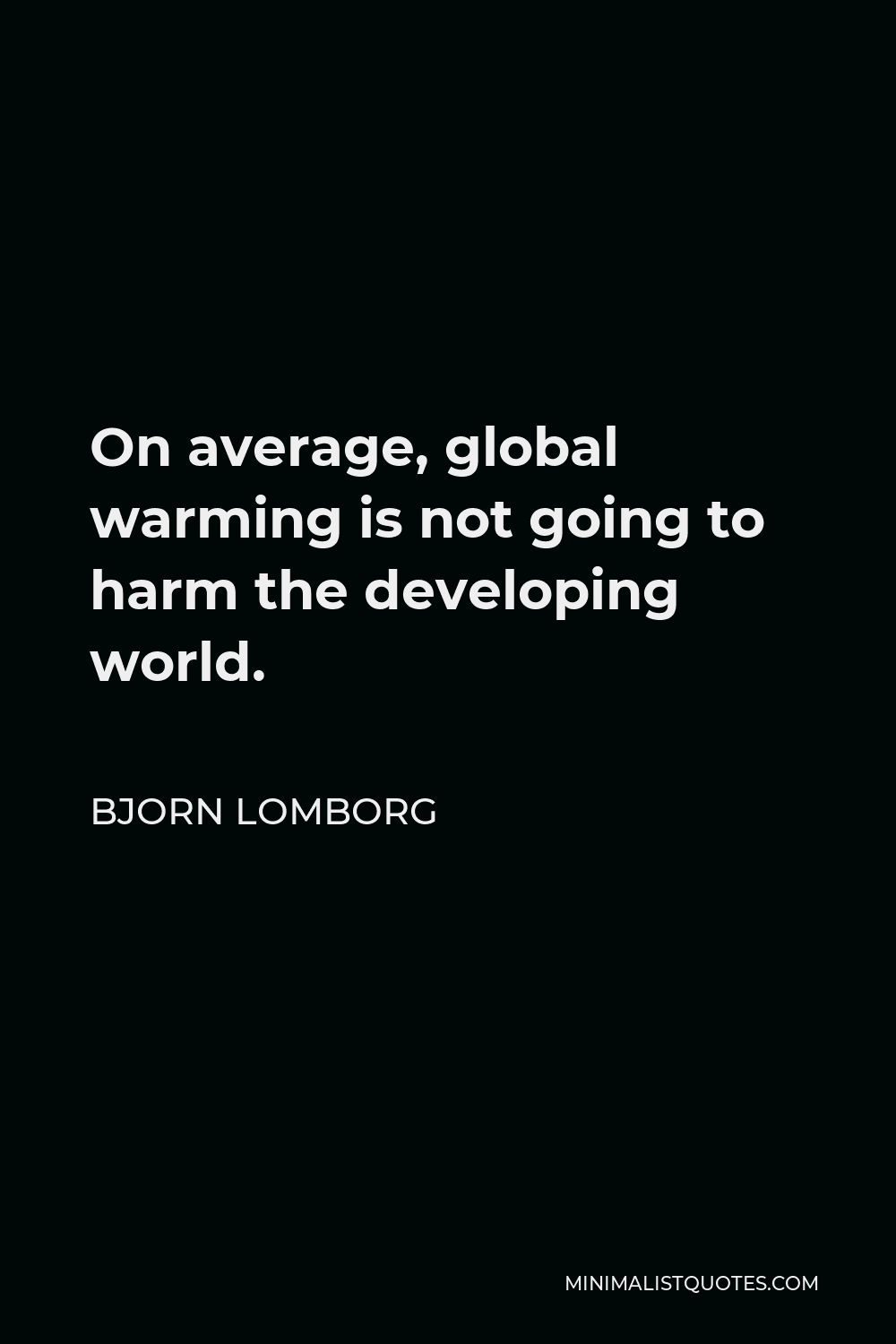
On average, global warming is not going to harm the developing world.
BJORN LOMBORG
